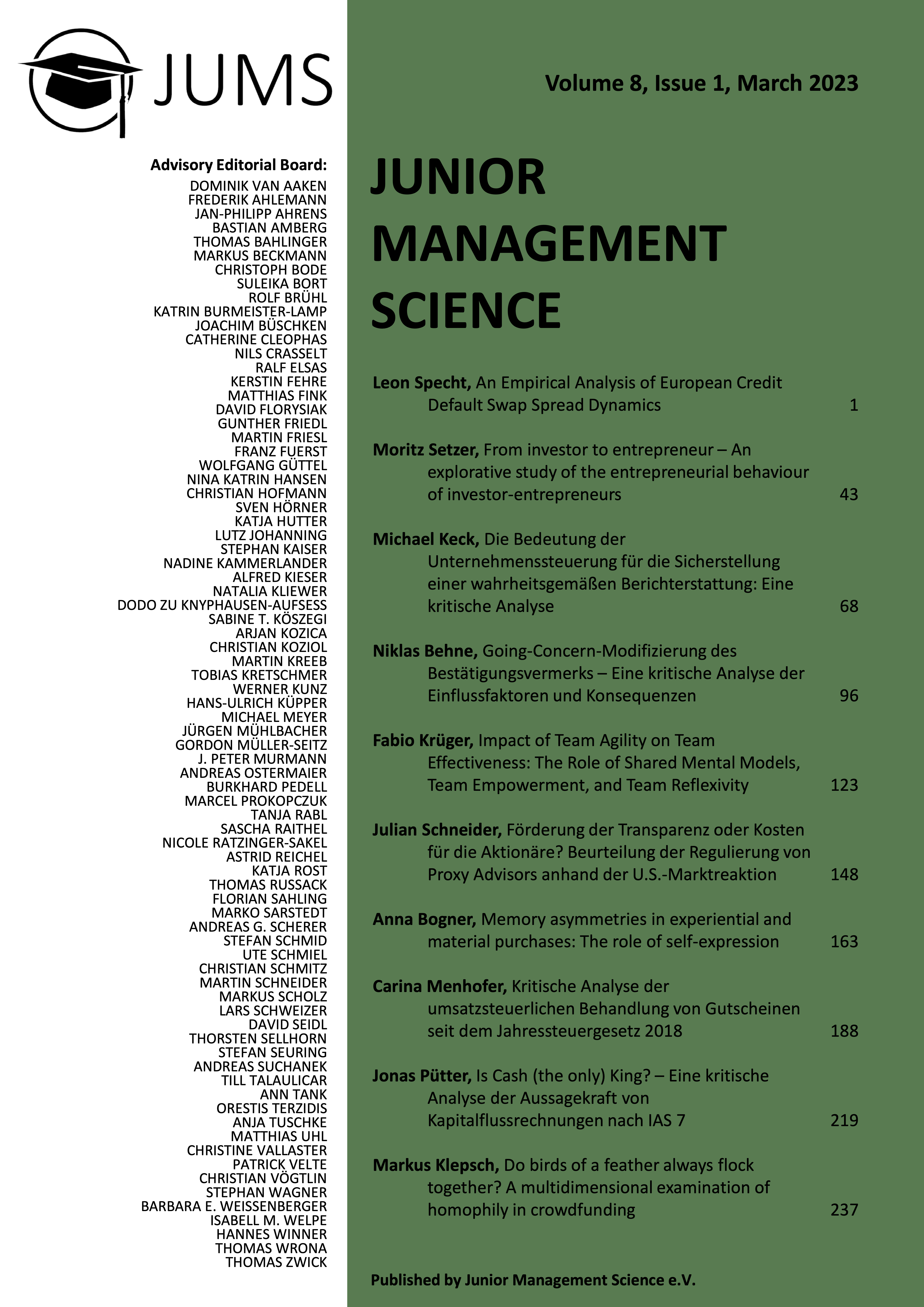Abstract
Research on entrepreneurial types argues that differences in decisions and actions of novice and habitual entrepreneurs can be attributed to prior experience and social ties. However, other forms of resource acquisition than business ownership experience are neglected in previous studies. This study investigates this research gap by exploring the entrepreneurial behavior of novice investor-entrepreneurs, first-time founders who have previously worked in venture capital or private equity. Drawing on a cross-sectional approach with 13 semi-structured interviews, this paper investigates whether investorentrepreneurs have already acquired the necessary resources relevant for new venture foundations in their role as investors. This study reveals that investor-entrepreneurs differ from other first-time entrepreneurs in several aspects. It shows that the differences can mainly be attributed to skills and knowledge already acquired through the job as an investor. In fact, venture capital experience seems to be more helpful for a venture's early foundation than private equity experience. The study discusses the implications of these findings for the literature on entrepreneurial types and their differentiation, thereby challenging existing differentiation and classification approaches.
Keywords: Investor-entrepreneur; Entrepreneurial types; Novice; Habitual.

This work is licensed under a Creative Commons Attribution 4.0 International License.

